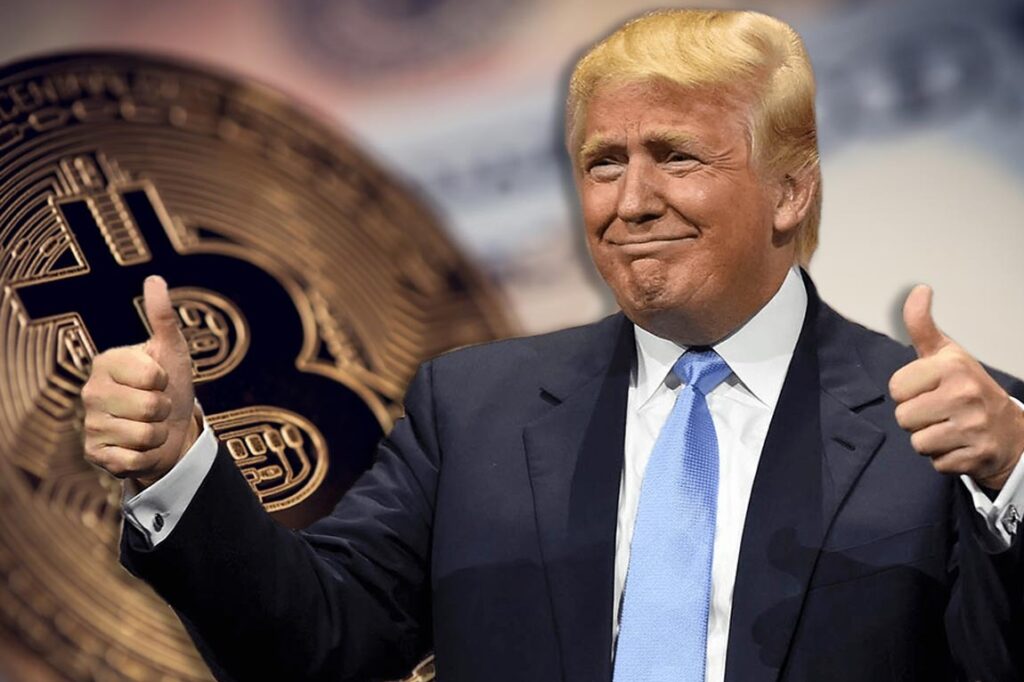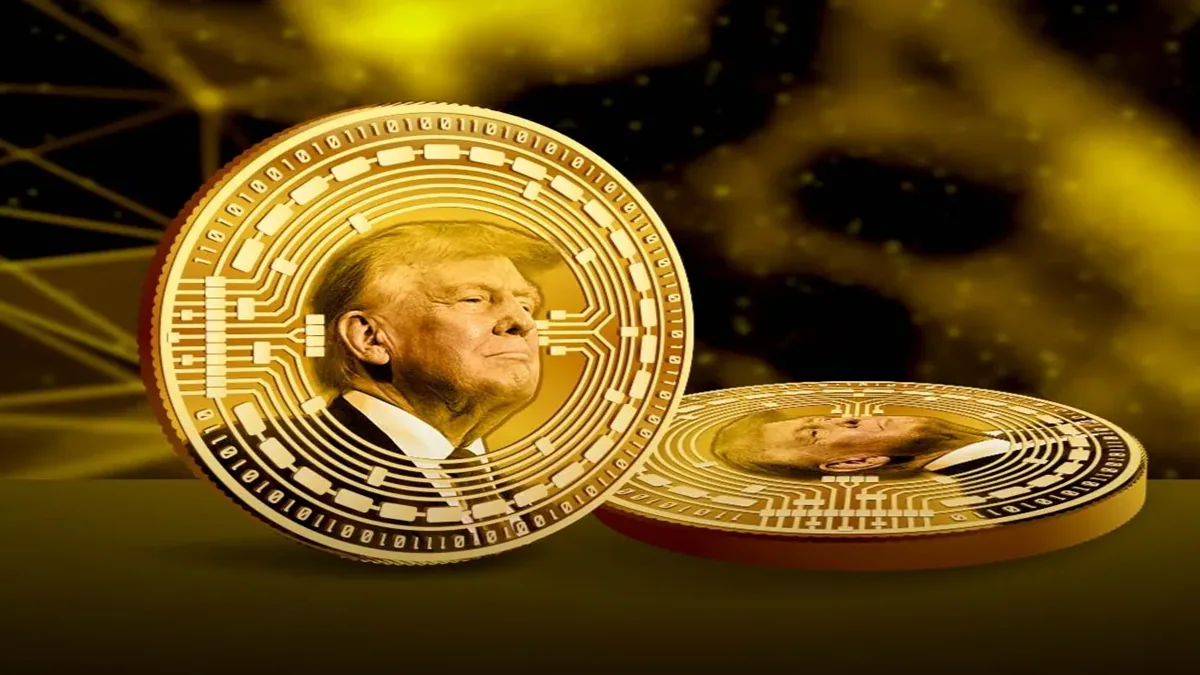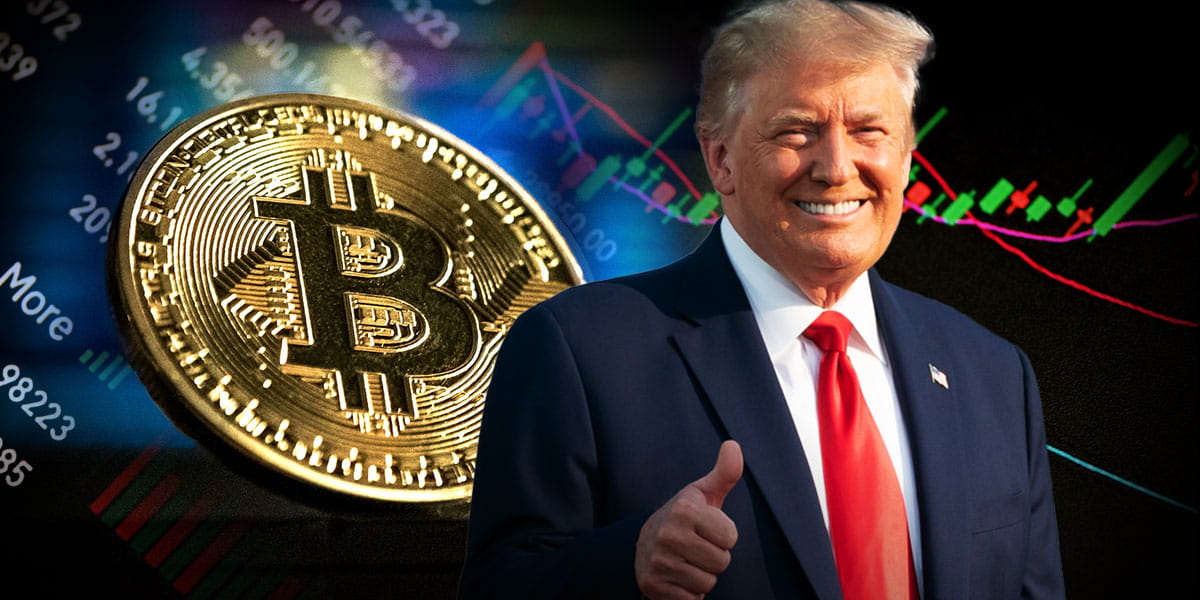With his entrance into cryptocurrencies, Donald Trump bitcoin project marks yet another chapter in a political career defined by complicated financial entanglements, ethical concerns, and continuous investigations. The real estate developer, TV personality, and former U.S. president is now positioned in the digital asset space—a field marked by volatility, deregulation, and rising political scrutiny. Observers and detractors of Trump’s bitcoin project are wondering about the timing, the reasons behind it, and the broader consequences of such action.
Trump’s bitcoin project is not only a marketing ploy or another headline-grabbing act. It raises questions regarding openness, influence, and conflicts of interest in public and private sectors since it indicates a confluence of finance, technology, and political power.
Trump-Linked Crypto Projects Stir Interest and Controversy
Reportedly connected to Trump—often referred to as “TrumpCoin,” or variants thereof by media and analysts—the crypto project is sold as a digital token fit for American nationalism and conservatism. Though not formally called “TrumpCoin,” various blockchain-based tokens and NFTs (non-fungible tokens) have already surfaced under his brand, including the “Trump Digital Trading Cards” series introduced in late 2022.
Promoted on Trump’s social media site, Truth Social, these assets are minted on public blockchains like Polygon, an Ethereum-compatible network. Against past claims condemning crypto as “a scam,” blockchain data shockingly shows Trump made over $4.8 million from NFT sales and royalties in 2023 alone. This turnabout raises regulatory openness, financial opportunism, and policy consistency issues.
Trump’s Crypto Embrace Deepens U.S. Political Divide
Trump’s embracing of cryptocurrencies comes at a turning point. With Republicans usually supporting less regulation and innovative environments, cryptocurrencies have grown more politicized in the United States. Democrats, however, typically concentrate on consumer safeguards, anti-money laundering (AML) compliance, and the environmental effects of proof-of-work mining systems like Bitcoin.
Trump is essentially arming cryptocurrencies as a political and fundraising tool by linking digital assets to the Make America Great Again (MAGA) campaign. Often dubious of conventional institutions, his followers might view crypto as a distributed means of funding for their candidate, avoiding traditional finance for campaign routes.
However, this approach erases the lines separating political fundraising, personal gain, and national policy—a further trademark of Trump’s administration and post-presidency activities. Already under observation, politically aligned crypto ventures, the SEC warns of the dangers associated with unregistered securities and false advertising claims.
Trump’s Business and Crypto
Trump’s effort with cryptocurrencies is not a singular instance of financial self-interest. During his presidency, Trump was accused of leveraging public power for personal benefit. Profiting from local lobbyists and foreign dignitaries, the Trump Organization kept ownership of the Trump International Hotel in Washington, D.C. Though finally dismissed, the Emoluments Clause litigation brought ethical questions regarding foreign influence to the forefront.
Trump never completely sold out of his company empire; instead, he put everything under a revocable trust run by his sons. Critics contend that this system did not significantly separate from his financial interests, thus allowing worldwide conflicts of interest.
His interest in cryptocurrencies seems to run in the same direction. Trump is directly monetizing his political brand via digital assets, creating red flags about campaign finance integrity, tax consequences, and market manipulation risks instead of separating himself from profit-driven businesses while running for public office.
Crypto, Trump, and Market Stability
Trump’s crypto involvement coincides with the U.S. government’s struggle with digital asset oversight. The SEC, CFTC, and IRS are under increasing scrutiny, particularly about NFT campaigns and tokens sponsored by celebrities. For well-known people diving into crypto advertising, the 2022 example of Kim Kardashian being fined $1.26 million for endorsing EthereumMax without appropriate disclosure is a warning story.
Given Trump’s power, a poorly reported or controlled crypto project might erode investor confidence and increase systemic risks. Furthermore, as Trump runs for re-election in 2024, concerns regarding how the participation of a sitting or past president in digital assets could affect financial market stability, policy decisions, and regulatory neutrality.
Should he be elected, would President Trump advocate a laissez-faire legislative approach supporting his interests? Would his government protect Trump-aligned bitcoin businesses from scrutiny? These issues challenge the core of democratic government and fiduciary responsibility and do not only reflect speculation.
Trump’s Crypto and Media Fusion
Trump’s aspirations for cryptocurrencies are closely related to his media business, Truth Social, run by Trump Media & Technology Group (TMTG). Designed as a right-wing substitute for Twitter (now X), the platform offers the tools for spreading and advertising his digital products. Trump has created a vertically integrated digital economy by aggregating media impact, political philosophy, and blockchain technology into a single ecosystem.
This integration helps Trump circumvent conventional media and payment systems through token sales, NFT drops, and crypto donations, raising money straight from his base. Though creative, it once more begs questions about data privacy, investor rights, and false information, mainly because Truth Social has been under SEC scrutiny over its SPAC merger approach.
Bitcoin’s Political Fundraising Problem
The Federal Election Commission (FEC) now lets political campaigns accept Bitcoin and other cryptocurrencies as donations as long as they follow current contribution limitations and reporting regulations. However, crypto brings further difficulties, including anonymous transactions, wallet obfuscation, and cross-border contributions.
Should Trump’s campaign use cryptocurrencies for fundraising, financial opacity and the possibility of illegal contributions will increase. This might also inspire other politicians to do the same, fostering a regulatory arms race that agencies like the FEC and SEC might not be able to handle.
Moreover, cryptocurrencies’ speculative character makes them a dangerous asset class for campaign treasuries. Sharp price swings could fundamentally change a campaign’s war chest, influencing strategy and preparation.
Politics on the Blockchain Edge
Blockchain and politics intersect to create a basic ethical conundrum: Can public trust endure when private financial interests shape public behavior? Trump’s bitcoin endeavor reveals a general lack of confidence in political integrity. It asks voters, legislators, and reporters to face difficult questions about responsibility in a political environment that is going digital first.
Transparency technologies, such as on-chain analytics companies like Chainalysis, Etherscan, and blockchain explorers, might offer insight into Trump-linked wallets and transactions. Still, political blockchain money’s moral and legal limits remain mostly unknown.
In Summary
Trump’s cryptocurrency project portrays the qualities that define his public life: aggressive opportunism, disdain for standards, and blending brand with power. This latest event abundantly shows that the consequences transcend NFTs or token sales. They contest the ideas of democratic transparency, regulatory control, and political finance architecture.
Trump’s crypto move might either be a warning story or a model for political innovation in a future when distributed technology redefines government decision-making, mainly relying on the response of institutions, citizens, and legislators.




